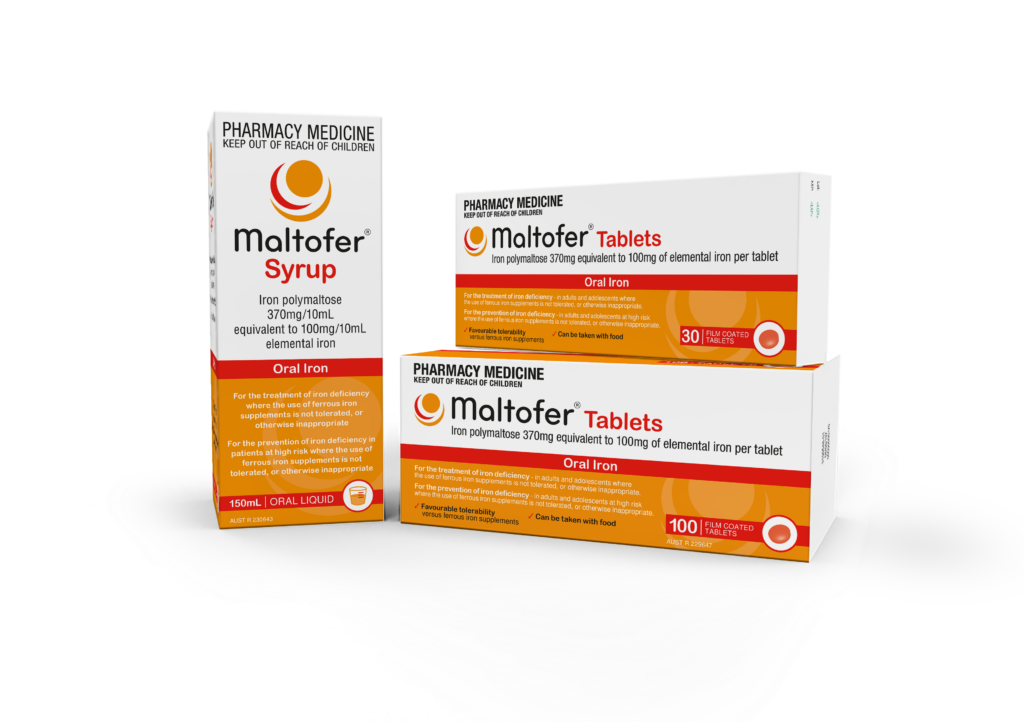Iron plays a key role in keeping our bodies and minds healthy — from the youngest of us to the oldest. Too little iron in our bodies can have a negative health impact. But too much iron may also cause health issues.
Iron deficiency is a common condition as we get older. And there are several possible causes for low iron levels in the elderly.
Here, we help you get your head around iron and ageing, including tips to maintain well-balanced iron levels as you get older.
Do iron levels change as we age?
Your body can’t produce iron, so you need to get all your iron from your diet.
Other than diet, there’s a variety of factors that can impact iron levels, including:
- Not absorbing iron well from the food you eat (such as when you have health issues with the gastrointestinal system).
- Levels of certain vitamins or minerals in the diet. Calcium and zinc can make it harder for you to absorb iron. Other compounds in your food, like citric acid and vitamin C, can help you absorb iron from food more easily.
- Blood loss (such as internal bleeding caused by gastrointestinal ulcers, or by regular blood donations)
- Some medications
Older people tend to eat less, have more health issues, and take more medications than younger people. So, it’s reasonable to expect iron levels to drop as you age.
And some researchers argue that low iron levels in the elderly often go unrecognised and untreated, with resulting symptoms being wrongly dismissed as a minor problem.
Why do I need to maintain iron levels as I age?

Everyone needs iron for normal cell and organ function. Iron is part of the protein haemoglobin, which helps carry oxygen around the body in our red blood cells. It’s also used in other key proteins and enzymes that our bodies need to function well. Iron supports the function of vital body systems and organs, including the:
- Immune system
- Brain
- Muscles
Having low iron levels can cause problems at any age, such as:
- Fatigue, weakness, listlessness
- Shortness of breath, dizziness or light-headedness
- Struggling to concentrate and remember things
- Getting infections
But for older people, the consequence of these problems may sometimes be greater. For example, weakness or dizziness may increase the risk of falls.
To offset the risks of low iron, a holistic approach is best. Diet, exercise, supplements, and routine check-ups may all play a role in maintaining healthy iron levels.
How can I support my iron levels as I age?
It’s important to monitor iron levels as you age and address any iron imbalance with the help of your GP.
Diet and exercise

What you eat, and how much you exercise, can have a huge impact on your health. It can also have an impact on your iron levels.
Since all our iron must come from our diet, it’s essential to eat foods rich in iron. For people over the age of 50, health experts recommend 8 mg of iron per day.
Iron-rich foods include things like:
- Red meat, offal and dark poultry meat
- Oily fish such as tuna and sardines
- Iron-fortified breakfast cereals
- Eggs
- Beans, lentils and peas
- Dark green vegetables like spinach and kale
Still not sure what to put on your grocery list? We’ve made finding healthy sources of dietary iron easier with our iron-rich shopping list.
Regular, intense exercise increases the body’s need for iron. Exercise causes more red blood cell production, and red blood cells need iron. Iron is also lost through sweating. If you do a lot of intense exercise, make sure you check your iron levels regularly with your GP.
Regular check-ups and blood tests

Metabolism, health status, eating and exercise habits tend to change as we age. So, we need to check we have the proper levels of essential elements, nutrients and vitamins to support our health. This makes regular blood tests and check-ups vital as we get older.
Usually, your GP will order a blood test if they’re concerned about any signs or symptoms of a health issue. But routine blood tests to check your iron levels can be helpful even if you’re feeling generally well.
Not sure how to approach a discussion about blood tests with your doctor? We’ve put together some advice about talking to your doctor if you’re concerned about your health, or about iron deficiency.
Include an iron supplement into your daily routine
Iron supplements are available over the counter without a prescription. However, the amount of iron in supplements that you buy over the counter varies a lot. Not all iron-containing supplements have enough iron to make a difference if you are iron deficient.
Maltofer contains 100 mg of elemental iron per dose and is for the treatment of iron deficiency in adults and adolescents where the use of ferrous iron supplements is not tolerated, or otherwise inappropriate. Make sure to check the amount of elemental iron in a supplement before you use it. Ask your doctor or pharmacist if you’re not sure if your supplement has the amount of iron you need.
Finally, it’s important to remember that you can’t self-diagnose iron deficiency based on how you’re feeling.
While iron supplements can help correct or prevent iron deficiency, too much iron in the body can cause other health problems. The aim of iron supplements is to replenish or maintain iron levels within the normal healthy range for an older adult.
So, it’s important to investigate low iron levels with your doctor’s help. If you have iron deficiency, your GP may recommend a supplement to help.






